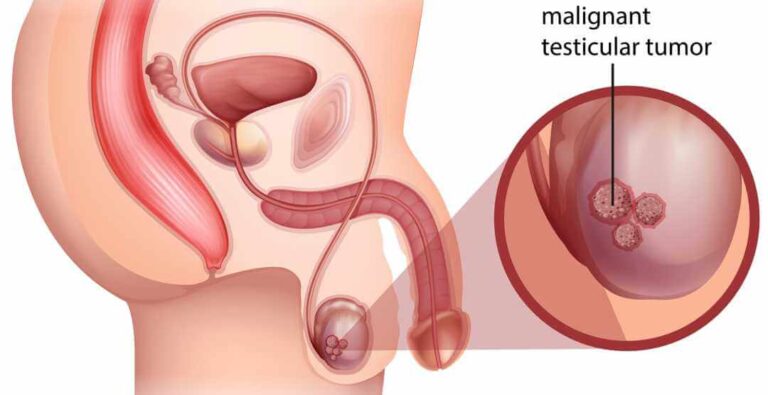Foods For Healthy Testicles: Your Fertility Depends On It

The Importance of a Balanced Diet for Male Fertility

Maintaining proper nutrition is crucial for overall health, and it plays a significant role in male fertility as well. A balanced diet ensures that the body receives all the essential nutrients it needs to function optimally, including those that support testicular health and sperm production.
Adequate intake of vitamins, minerals, antioxidants, and healthy fats is essential for maintaining the proper function of testicles and promoting healthy sperm production. For example, vitamins C and E have been shown to improve sperm quality by protecting against oxidative stress, which can damage sperm DNA. Similarly, minerals like zinc and selenium play a vital role in sperm production and motility. Including a varied range of nutrient-rich foods in your diet ensures that you are meeting the body’s requirements for these essential nutrients, thus supporting male fertility.
• A balanced diet provides the necessary nutrients for optimal testicular health and sperm production.
• Vitamins C and E help improve sperm quality by protecting against oxidative stress.
• Minerals like zinc and selenium are important for sperm production and motility.
• Including a variety of nutrient-rich foods in your diet supports male fertility.
Nutrient-Rich Foods That Promote Testicular Health
Testicular health is crucial for male fertility, and a nutrient-rich diet can play a significant role in promoting optimal function. By incorporating specific foods into your diet, you can provide your body with essential nutrients that support testicular health and ultimately enhance your chances of reproducing.
One group of nutrients that are particularly important for testicular health is antioxidants. Antioxidants help protect the testes from oxidative stress, which can damage sperm cells. Foods rich in antioxidants include fruits and vegetables like berries, citrus fruits, tomatoes, spinach, and broccoli. These nutritious choices can provide your body with vitamins A, C, and E, as well as minerals like selenium and zinc, all of which support testicular health.
Furthermore, it is essential to consume foods that are rich in healthy fats. Omega-3 fatty acids, found in fatty fish like salmon, sardines, and trout, can improve sperm count and motility. Additionally, avocados, nuts, and seeds are excellent sources of monounsaturated and polyunsaturated fats, which not only help maintain testicular function but also support overall reproductive health.
Incorporating these nutrient-rich foods into your diet can significantly contribute to maintaining and improving testicular health. However, it is important to note that a balanced diet should also encompass other necessary nutrients for optimal reproductive function. By consulting with a healthcare professional or a registered dietitian, you can develop a comprehensive meal plan tailored to your specific needs and reproductive goals.
Incorporating Antioxidant-Rich Foods into Your Diet
Antioxidants play a crucial role in maintaining overall health, and they can also impact male fertility. Including antioxidant-rich foods in your diet can help protect the testicular cells from oxidative stress, which can lead to DNA damage and decreased sperm quality.
Fruits and vegetables are excellent sources of antioxidants and should be included in your daily meals. Brightly colored fruits such as berries, citrus fruits, and pomegranates are particularly rich in antioxidants like vitamin C and polyphenols. These antioxidants can help combat oxidative damage in the testes and promote healthy sperm production. Additionally, leafy greens like spinach and kale are packed with antioxidants such as lutein and zeaxanthin, which have been shown to improve sperm quality and motility.
Incorporating antioxidant-rich foods into your diet is not only essential for maintaining testicular health but also for overall well-being. By making conscious choices to include these foods, you can provide your body with the vital nutrients it needs to function optimally. However, it’s important to note that a balanced diet should always be accompanied by other healthy lifestyle choices, such as regular exercise and stress management, to further enhance fertility.
The Role of Healthy Fats in Maintaining Testicular Function
Healthy fats play a crucial role in maintaining optimal testicular function. The testes are majorly composed of fatty tissues, and consuming the right types of fats is essential for promoting their health and function.
Polyunsaturated fats, such as omega-3 and omega-6 fatty acids, are particularly beneficial for testicular health. These fats are commonly found in fatty fish (such as salmon and mackerel), nuts and seeds (such as flaxseeds and walnuts), and plant-based oils (such as soybean and sunflower oil). Research has shown that these fats help regulate hormone production, improve sperm quality, and reduce testicular inflammation, thus supporting overall testicular function.
In addition to polyunsaturated fats, monounsaturated fats are also important for maintaining testicular health. Foods rich in monounsaturated fats include olive oil, avocados, and nuts like almonds and cashews. These fats not only provide energy but also help in the production of testosterone, a key hormone involved in male fertility. Including these healthy fats in your diet can contribute to better testicular function and overall reproductive health.
Protein Sources for Optimal Testosterone Production
Protein is an essential nutrient that plays a crucial role in the production of testosterone, the primary male sex hormone. Incorporating protein-rich foods into your diet is important for maintaining optimal testosterone levels and overall testicular health.
When it comes to protein sources, there are various options to choose from. Lean meats such as chicken, turkey, and lean cuts of beef are excellent sources of high-quality protein. These meats are not only rich in protein but also provide important nutrients like zinc and vitamin D, which have been linked to testosterone production. Seafood, particularly fatty fish like salmon and sardines, is another great source of protein. These fish are also rich in omega-3 fatty acids, which are known to support healthy testicular function.
Additionally, plant-based protein sources can also be included in your diet. Legumes such as lentils, chickpeas, and beans, as well as tofu and tempeh, are all good sources of protein. These plant-based options are not only rich in protein but also contain important nutrients like fiber and antioxidants that contribute to overall health. Incorporating a variety of protein sources into your meals can help ensure you’re getting a well-rounded intake of essential nutrients to support optimal testosterone production. However, it is important to note that the quantity and quality of protein consumed should be considered alongside an individual’s overall calorie and nutrient needs.
In conclusion, protein plays a vital role in supporting optimal testosterone production. By including a mix of protein sources such as lean meats, seafood, and plant-based options in your diet, you can provide your body with the necessary building blocks for testosterone synthesis. However, it is always advisable to consult with a healthcare professional or registered dietitian to personalize your diet plan based on your specific needs and health status.
Essential Vitamins and Minerals for Testicular Health
Vitamins and minerals play a crucial role in maintaining optimal testicular health. These micronutrients are essential for various physiological processes that occur within the testes, including the production of testosterone, sperm development, and overall reproductive function. Incorporating foods rich in these vital nutrients into your diet can significantly support testicular health and fertility.
One key vitamin for testicular health is vitamin C. This potent antioxidant is involved in the synthesis of collagen, a protein that forms the structural component of the testes. Additionally, vitamin C helps protect the testicular tissue from oxidative stress, which can have detrimental effects on sperm production. Citrus fruits such as oranges and grapefruits, as well as strawberries, bell peppers, and broccoli, are excellent sources of vitamin C.
Another essential nutrient for testicular health is zinc. This mineral is necessary for the development and maturation of sperm. It also helps regulate testosterone levels and supports the overall function of the testes. Foods rich in zinc include oysters, beef, poultry, pumpkin seeds, and legumes. However, it’s important to note that excessive zinc intake can have adverse effects, so it’s crucial to maintain a balanced approach and consult with a healthcare professional for individualized recommendations.
The Benefits of Including Whole Grains in Your Diet
Whole grains are an essential component of a balanced diet and have been shown to provide several benefits for testicular health. These grains are rich in fiber, vitamins, minerals, and antioxidants, all of which play a vital role in supporting proper testicular function. Incorporating whole grains into your diet can help improve sperm quality and motility, reduce oxidative stress, and enhance overall fertility.
One of the major advantages of consuming whole grains is their high fiber content. Fiber aids in regulating blood sugar levels and controlling weight, which are crucial factors for maintaining optimal testicular health. Additionally, whole grains have been associated with a lower risk of developing conditions such as obesity, diabetes, and cardiovascular diseases, all of which can negatively impact male fertility. By including whole grains like brown rice, quinoa, and whole wheat in your meals, you can provide your body with the necessary nutrients and support healthy testicular function.
In conclusion, the inclusion of whole grains in your diet offers numerous benefits for testicular health. These nutrient-rich grains not only provide essential vitamins, minerals, and antioxidants but also assist in regulating blood sugar levels and maintaining a healthy weight. By incorporating whole grains into your meals, you can optimize your fertility and promote overall reproductive well-being.
The Impact of Hydration on Testicular Function
Hydration plays a crucial role in maintaining overall health, and it also has an impact on testicular function. Staying adequately hydrated is essential for optimal male fertility. When you are dehydrated, the body’s fluid balance is disrupted, affecting various physiological processes, including the reproductive system.
Water is vital for maintaining the right temperature in the testes, as they need to be slightly cooler than the rest of the body for proper sperm production. Dehydration can lead to an increase in testicular temperature, which can adversely affect sperm production and quality. Studies have shown that even mild dehydration can result in decreased semen volume and sperm concentration, as well as reduced sperm motility.
It is recommended to consume an adequate amount of water throughout the day to ensure optimal hydration. The exact amount may vary depending on individual factors such as activity level, climate, and overall health. However, a general guideline is to aim for at least eight glasses (64 ounces) of water daily. Remember, staying hydrated is not only important for overall well-being but also for supporting healthy testicular function.
Avoiding Harmful Substances That Can Affect Fertility
When it comes to male fertility, it is important to be cognizant of the substances we expose ourselves to. Certain chemicals and compounds can have detrimental effects on reproductive health, making it crucial to avoid these harmful substances. One such substance to be wary of is cigarette smoke. Smoking has been shown to have a negative impact on sperm quality, including reduced sperm count and motility. Additionally, exposure to second-hand smoke has also been found to affect fertility in men. It is advisable for individuals looking to improve their fertility to quit smoking and avoid environments where they are exposed to tobacco smoke.
Alcohol consumption is another factor that can significantly affect male fertility. Excessive alcohol intake has been linked to decreased sperm quality and production, as well as hormonal imbalances. It is recommended that men seeking to enhance their fertility limit their alcohol intake or abstain from alcohol altogether. It is important to note that moderation is key, as moderate alcohol consumption does not seem to have as significant an impact on fertility. However, it is always best to consult with a healthcare professional to determine what is appropriate for individual circumstances.
The Role of Regular Exercise in Maintaining Testicular Health
Regular exercise plays a crucial role in maintaining not only overall health but also the well-being of the male reproductive system. Engaging in physical activity has been shown to have a positive impact on testicular function and fertility.
One of the key ways in which exercise benefits testicular health is by improving blood flow to the testes. Physical activity increases the circulation of blood throughout the body, including to the reproductive organs. This enhanced blood flow ensures that the testes receive a sufficient supply of oxygen and nutrients, which are essential for optimal testicular function. Additionally, exercise helps to regulate body weight and body fat percentage, both of which can influence hormone production and sperm quality. Lower levels of body fat are associated with higher testosterone levels and better sperm production.
It is important to note that moderation is key when it comes to exercise and testicular health. Overly intense or excessive exercise can have detrimental effects on fertility. High-intensity workouts and endurance training, in particular, have been shown to temporarily reduce sperm production. Therefore, it is advisable to strike a balance and engage in regular, moderate-intensity exercise to reap the benefits without interfering with testicular function. Implementing a well-rounded exercise routine that includes both cardiovascular and strength-training exercises is recommended for overall testicular health.
Incorporating regular physical activity into your daily routine not only helps to maintain a healthy weight but also promotes optimal testicular function. The positive effects of exercise on testicular health include improved blood flow to the testes and regulation of hormone levels. However, it is important to avoid overexertion, as excessive exercise can have adverse effects on fertility. By combining regular exercise with a balanced, nutrient-rich diet, you can support your reproductive health and increase your chances of achieving and maintaining optimal fertility.
Foods That Boost Sperm Count and Motility
When it comes to improving sperm count and motility, having a nutrient-rich diet plays a crucial role. Certain foods contain specific nutrients that can positively impact male fertility. For instance, foods rich in antioxidants like vitamin C and vitamin E can help combat oxidative stress, which can damage sperm cells. Good sources of vitamin C include citrus fruits, berries, and kiwi, while vitamin E can be found in nuts, seeds, and spinach.
Additionally, incorporating foods high in zinc into your diet can also be beneficial. Zinc is known to play a critical role in testosterone production and sperm development. Oysters, beef, poultry, and pumpkin seeds are excellent sources of this essential mineral. Other nutrients like selenium, found in Brazil nuts, and omega-3 fatty acids, found in fatty fish like salmon and mackerel, have also been associated with improved sperm quality.
In summary, focusing on a balanced diet that includes nutrient-rich foods such as fruits, vegetables, nuts, seeds, lean proteins, and fatty fish can contribute to boosting sperm count and motility. These foods provide essential vitamins, minerals, and antioxidants that support the overall health of the male reproductive system. By making conscious dietary choices, men can take proactive steps towards optimizing their fertility potential.
Understanding the Connection Between Obesity and Male Infertility
Obesity has long been recognized as a risk factor for various health conditions, including heart disease, diabetes, and certain types of cancer. However, emerging research suggests that obesity can also have a significant impact on male fertility. Several mechanisms have been proposed to explain this connection.
Firstly, excess body weight can disrupt the hormonal balance in men, leading to decreased testosterone levels. Testosterone is essential for the production and maturation of healthy sperm. Studies have shown that obese men tend to have lower levels of testosterone compared to their lean counterparts. This hormonal imbalance can impair sperm production, motility, and overall fertility.
Secondly, obesity is associated with chronic inflammation, which can have detrimental effects on the testicles. Chronic inflammation can cause damage to the testicular tissue, leading to reduced sperm quality. In addition, it can disrupt the delicate balance between antioxidants and oxidative stress in the reproductive system, further compromising fertility.
It is important to note that the impact of obesity on male fertility is not limited to natural conception. In fact, studies have found that obesity can also adversely affect the success rates of assisted reproductive technologies, such as in vitro fertilization (IVF). Obese men undergoing IVF have been shown to have lower fertilization rates, poorer embryo quality, and decreased implantation rates compared to men with a healthy weight.
In light of these findings, it is evident that obesity can have profound effects on male fertility. Therefore, addressing and managing obesity is crucial not only for overall health but also for reproductive potential. In the next section, we will explore strategies for weight management and lifestyle modifications that can positively influence male fertility outcomes.
The Role of Stress Management in Promoting Testicular Health
Stress has long been recognized as a significant factor in overall health and well-being. When it comes to male reproductive health, managing stress plays a crucial role in promoting testicular health.
Research indicates that chronic stress can have detrimental effects on various aspects of reproductive function. Stress can disrupt hormonal balance, leading to decreased testosterone production and impaired sperm quality. Additionally, stress may contribute to oxidative stress, which can damage sperm DNA and reduce fertility.
To mitigate the negative impact of stress on testicular health, it is important to incorporate stress management techniques into your daily routine. Regular exercise, such as yoga or meditation, has shown to be effective in reducing stress levels. Additionally, engaging in activities that you enjoy, spending time with loved ones, and adopting healthy lifestyle habits can all contribute to stress reduction. Prioritizing self-care and finding healthy ways to cope with stress can be instrumental in promoting optimal testicular function.
It is worth noting that stress management alone may not be sufficient for individuals experiencing severe fertility challenges. In such cases, seeking professional help from a healthcare provider specializing in reproductive health may be essential. A multi-faceted approach, combining stress management strategies with appropriate medical interventions, can maximize the chances of achieving desired reproductive outcomes.
Overall, recognizing the impact of stress on testicular health and actively implementing stress management techniques can play a vital role in promoting male fertility and reproductive well-being. By taking steps to manage stress, individuals can support their overall reproductive health and contribute to a healthier, more balanced life. Further research is needed to explore the specific mechanisms through which stress affects testicular function, providing a more comprehensive understanding of this intricate relationship.
Creating a Well-Rounded Meal Plan for Optimal Testicular Function
Creating a well-rounded meal plan that supports optimal testicular function is crucial for maintaining male reproductive health. By incorporating a variety of nutrient-rich foods into your diet, you can ensure that you are providing your body with the essential vitamins, minerals, and antioxidants it needs to support healthy testicular function.
A balanced meal plan should include a variety of foods from different food groups. Begin by incorporating nutrient-dense fruits and vegetables, such as berries, citrus fruits, leafy greens, and cruciferous vegetables, into your daily meals. These foods are rich in antioxidants, which can help protect the testes from oxidative stress and boost overall testicular health. Additionally, including whole grains, lean proteins, and healthy fats in your diet is important for promoting hormonal balance and supporting optimal testosterone production.
When planning your meals, consider including foods that are high in specific vitamins and minerals that are essential for testicular health. Some examples include vitamin C, which is found in citrus fruits, bell peppers, and kiwi, and is known to improve sperm quality. Similarly, incorporating foods rich in zinc, such as oysters, beef, and pumpkin seeds, can support sperm production and motility. Eating foods that are high in vitamin E, such as almonds, spinach, and sunflower seeds, can also be beneficial for maintaining healthy testicular function.
In conclusion, creating a well-rounded meal plan for optimal testicular function involves incorporating a variety of nutrient-rich foods into your diet. By focusing on fruits, vegetables, lean proteins, whole grains, and healthy fats, you can provide your body with the necessary nutrients it needs to support healthy testicular function. Additionally, including specific vitamins and minerals that are essential for testicular health can further enhance your reproductive well-being. By following a balanced meal plan, you can take proactive steps towards maintaining optimal testicular function and overall male fertility.
What is the importance of a balanced diet for male fertility?
A balanced diet is crucial for male fertility as it provides the necessary nutrients to support optimal testicular function and hormone production.
Which nutrient-rich foods promote testicular health?
Foods such as spinach, broccoli, carrots, and tomatoes are rich in antioxidants and vitamins that promote testicular health.
How can I incorporate antioxidant-rich foods into my diet?
You can incorporate antioxidant-rich foods into your diet by including fruits like berries, citrus fruits, and pomegranates, as well as vegetables like kale and Brussels sprouts.
What role do healthy fats play in maintaining testicular function?
Healthy fats, found in foods like avocados, nuts, and olive oil, are important for hormone production and overall testicular health.
What are some protein sources for optimal testosterone production?
Protein-rich foods such as lean meats, poultry, fish, eggs, and legumes are beneficial for optimal testosterone production.
Which essential vitamins and minerals are important for testicular health?
Vitamins like vitamin C, vitamin E, and minerals like zinc and selenium are essential for testicular health.
How do whole grains benefit testicular health?
Whole grains, including whole wheat, brown rice, and quinoa, provide important nutrients like fiber and B vitamins that support testicular health.
Does hydration impact testicular function?
Yes, proper hydration is important for testicular function as it helps maintain optimal sperm production and motility.
What harmful substances should be avoided to protect fertility?
Harmful substances such as excessive alcohol, tobacco, and recreational drugs should be avoided to protect fertility.
How does regular exercise maintain testicular health?
Regular exercise improves blood circulation to the testicles, promotes hormone balance, and enhances overall testicular health.
Which foods can boost sperm count and motility?
Foods like walnuts, pumpkin seeds, oysters, and dark chocolate are known to boost sperm count and motility.
What is the connection between obesity and male infertility?
Obesity can contribute to male infertility by negatively impacting hormone levels, sperm quality, and overall reproductive health.
How does stress management promote testicular health?
Effective stress management techniques, such as exercise, meditation, and relaxation techniques, can help reduce stress hormones and promote testicular health.
How can I create a well-rounded meal plan for optimal testicular function?
To create a well-rounded meal plan, include a variety of nutrient-rich foods like fruits, vegetables, lean proteins, whole grains, and healthy fats, while avoiding harmful substances and staying hydrated.






